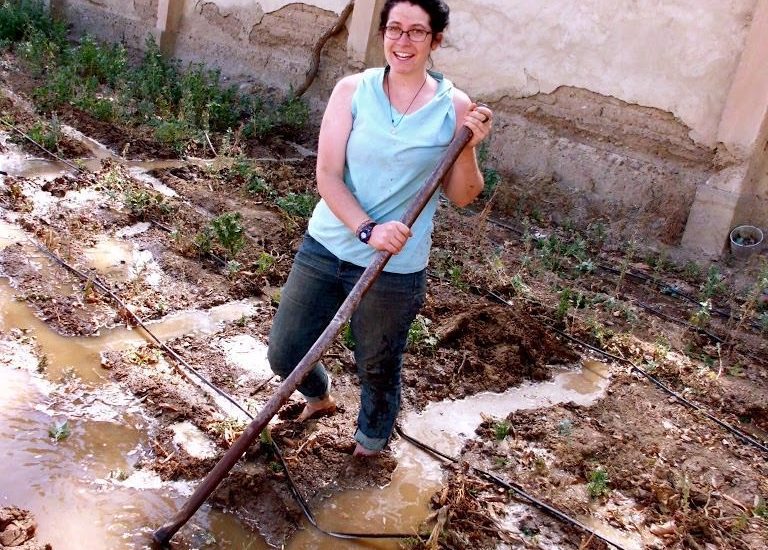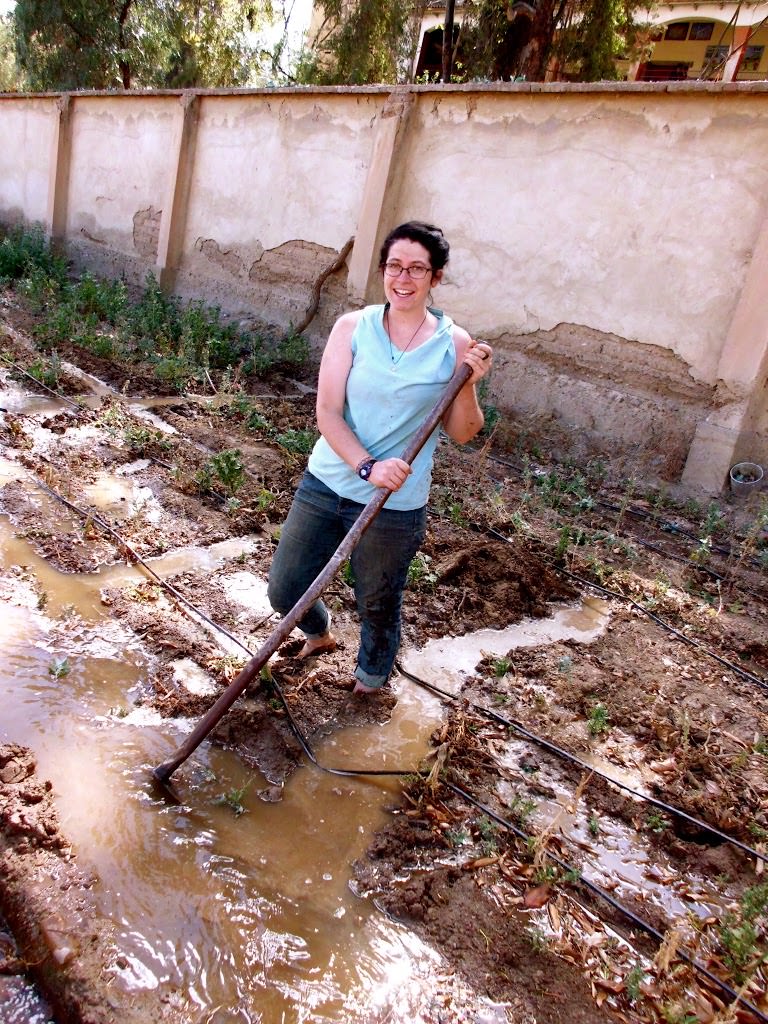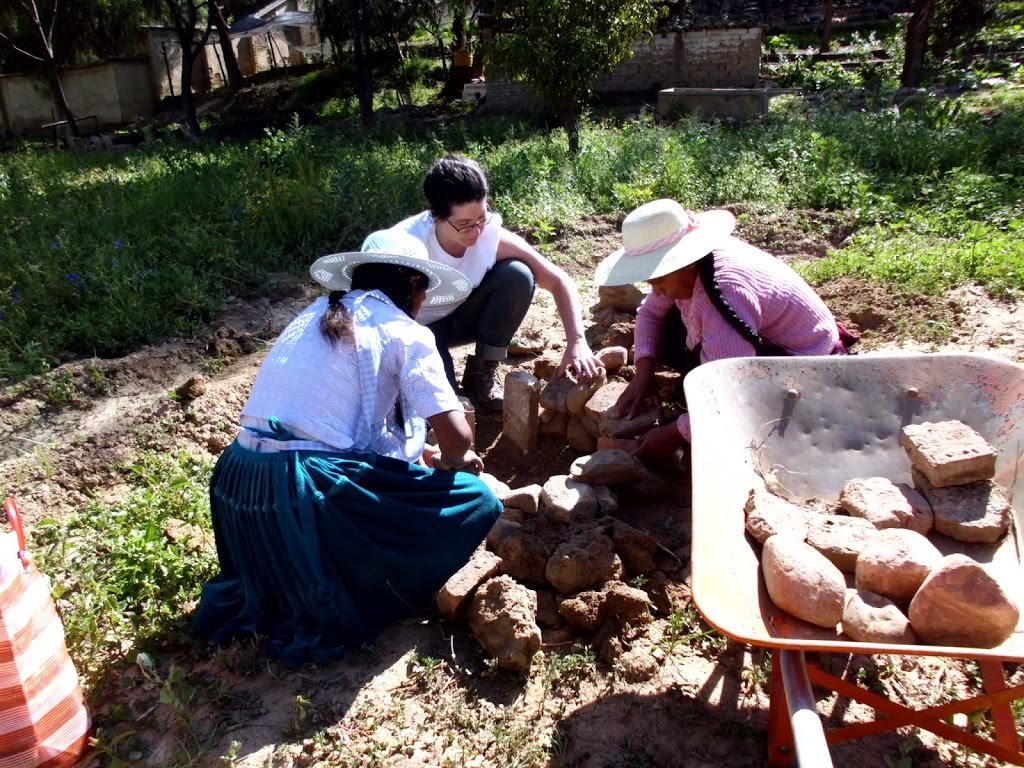Mission Monday: Sharing and Solidarity with Workers

On this Labor Day edition of “Mission Monday,” we share a reflection from first-year lay missioner Annemarie Barrett who serves in Cochabamba, Bolivia.
I had white paint all over my paints, sandals and even in my hair. I was painting the inside of one of the sheds in the parish garden of Santa Vera Cruz along with one of the parents from the parish.
And while we were painting I heard someone call my name from outside the shed. It was one of the women from Santa Rosa, the rural community south of the parish, which I visit weekly. The women in Santa Rosa exchange work with us in the parish garden and that day they had come to the garden for a meeting.
 |
| Annemarie carving water canals at a work day in the parish garden |
As I started cleaning up the paint supplies, Verna, the woman who called my name looked me up and down and said with a smile:
“¿Ya eres una trabajadora?”
“You’re a worker now?”
What she said struck something deep within me.
It brought me back to one of the first meetings I ever had with these women from Santa Rosa, where they discussed their identity as women. They told us that when they thought of their lives as women, they thought first and foremost of the work they do, the cleaning, the cooking, caring for their kids, their husbands, their animals, their homes. They identified themselves as workers, as trabajadoras.
Now, I did not grow up working class. In fact, I would say that I grew up largely ignorant of class differences. I had the privilege of economic security and private education. I rarely considered class differences and in many ways had the privilege to ignore them.
And when I graduated college, I could have applied for an internship or job that would have likely placed me behind a computer and kept me within the ranks of my class, set me on a path to fulfill what my private education had given me the potential to achieve, namely economic security.
But instead, living as a lay missioner, I am interacting every day with people outside of my class. I am working in the southern zone of the city in a parish directly connected to rural communities where families struggle for access to water and quality education.
I am made aware everyday of my privilege as a foreign volunteer, as a citizen of the United States, as a person with white skin, with money in the bank, with a college degree and a home here in downtown Cochabamba which gives me easy access to water, fresh produce and reliable public transportation.
I am made aware of this daily because I work with people who do not know these same privileges. I work with people who others judge as ignorant, lazy, and incompetent because of the indigenous language they speak, the clothes that they wear and the color of their skin.
I do not pretend that I work like the women in Santa Rosa work. Instead I see quite clearly all the time the differences in our life experiences, the struggles that they live every day that I have never known.
 |
| Annemarie learning how to construct a homemade oven with the women of Santa Rosa to cook the potato harvest from the parish garden. |
For me to be called a trabajadora is not to pretend that Verna and I come from the same struggles, but to me it is an affirmation of the transformative power of living in solidarity with marginalized communities, of sharing work together. To me it means that despite our differences, we can share work together, we can share something in common.
My relationships working with these women are transforming me. They are helping me to see beyond my own privilege and life experience. Their stories are inviting me to explore our differences and honor their struggles as distinct from my own.
And they are also heartening my faith in our Franciscan ministry of presence, that in a world rife with division there is great possibility in relationships of solidarity.
Tagged in:
